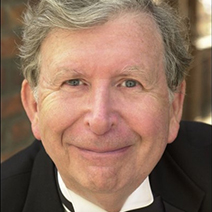David Johnson
A Musical Memoir of Ol’ Manhattan
Tom Rolla’s Gardenia, West Hollywood, CA, February 12, 2016
Reviewed by Elliot Zwiebach for Cabaret Scenes
 David Johnson is an utterly charming performer with a deeply resonant lyric baritone voice that harkens back to an earlier era of extraordinary movie crooners — singers he listened to and learned from while growing up in Manhattan in the 1940s and 1950s. Using songs from the movies he watched as a youngster to tell the story of his life, Johnson came across as sincere, honest and completely unpretentious, with a vocal richness that belies the fact he’s 80 years old.
David Johnson is an utterly charming performer with a deeply resonant lyric baritone voice that harkens back to an earlier era of extraordinary movie crooners — singers he listened to and learned from while growing up in Manhattan in the 1940s and 1950s. Using songs from the movies he watched as a youngster to tell the story of his life, Johnson came across as sincere, honest and completely unpretentious, with a vocal richness that belies the fact he’s 80 years old.
online pharmacy https://blackmenheal.org/wp-content/themes/twentytwentythree/parts/html/clomiphene.html no prescription drugstore
buy lexapro online https://drugeriemarket.co.uk/wp-content/languages/new/britain/lexapro.html no prescription
He opened with an enthusiastic version of “I Got Out of Bed on the Right Side” (Arthur Schwartz/Johnny Mercer), an amusing ditty from Dangerous When Wet, recalled his childhood affection for swimming with a pair of songs from Pagan Love Song that still clearly delight him — “Sea of the Moon” and “House of Singing Bamboo” (Harry Warren/Arthur Freed), performed a stellar version of the heavenly “Star Dust” (Hoagy Carmichael/Mitchell Parish), and ended with a solid, rich version of “You Are My Lucky Star” (Nacio Herb Brown/Arthur Freed) in a nod to his favorite movie, Singin’ in the Rain.
Johnson’s skill as a writer was front-and-center in his patter as he told well-crafted autobiographical stories to set up each song: talking about the bathtub with a cover, in the kitchen of the apartment in which he grew up, where he did most of his earliest singing; the design of the local movie theater (the Bijou, which he and his mother jokingly called the By-Joe); the plush carpeting at the Roxy when he and his mother went uptown to splurge on a movie; and his discovery of an abandoned collection of 78 rpm recordings of movie songs that enabled him to sing along with Fred Astaire, Gene Kelly, Howard Keel and — though he said he never told his friends — Jane Powell.
And what songs he sang, then and now: a mellifluous “Pennies from Heaven” (Arthur Johnston/Johnny Burke), his favorite bathtub song; a smooth “It Might As Well Be Spring” (Richard Rodgers/Oscar Hammerstein II), which occasioned his story about seeing State Fair at the Roxy; and a sweet, mellow take on “Too Late Now” (Burton Lane/Alan Jay Lerner, from Royal Wedding), which had the sold-out audience so rapt that it took a beat after the song ended before bursting into applause.
Johnson clearly had fun working his way through the tongue-twisting novelty “How Could You Believe Me When I Said I Loved You When You Know I’ve Been a Liar All My Life?
online pharmacy https://blackmenheal.org/wp-content/themes/twentytwentythree/parts/html/amitriptyline.html no prescription drugstore
buy vibramycin online https://drugeriemarket.co.uk/wp-content/languages/new/britain/vibramycin.html no prescription
” (Lane/Lerner), and he amused the audience astride a stool with one of his signature songs, “Whoa, Emma” (Harry Warren/Dorothy Fields), a delightful love song to a horse, introduced by Howard Keel in Texas Carnival.
Johnson had superb support from Andrew Belling on piano — who Johnson said had approached him after hearing him sing a year ago, and told him he wanted to play for him — and Steve Bringelson on bass.





